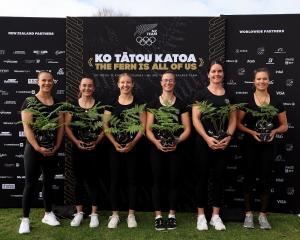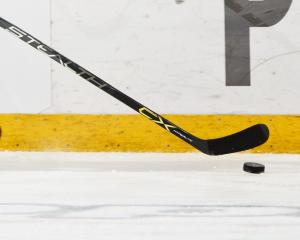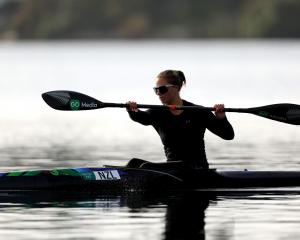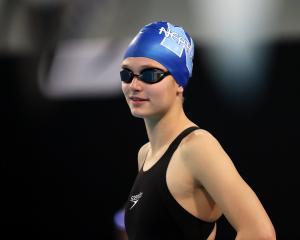
The 44-year-old Scot - who lives in the southwest English county of Somerset - had his big career break in beating Phil Taylor in January's world final in London, denying the legend a 17th world title.
Anderson happily admits to possessing rare natural gifts.
He picked up his first darts at the age of 24 and immediately threw scores of 140, 180, 140.
"They were my first-ever throws and I didn't even know that was any good," says Anderson, one of the stars - including Taylor - who will play to a packed house in the Auckland Darts Masters at the Trusts Arena starting on Friday.
"I had always been good at sports like golf, although I was never any good at football."
As the affable Anderson leans back on a chair outside his central Auckland hotel and draws on a cigarette, he explains a practice regime based heavily on tuning up at the board for four hours on match day.
Apart from that, he might head to his local pub - the Wellington Arms in tiny Rooksbridge - twice a week where he plays against mates from 7 to 11pm.
"I've seen guys who practise eight hours a day, seven days a week, who turn up and get beaten in the first round," says Anderson.
"Each to their own - but it would do my head in, practising on my own. My mates are not too bad ... they don't beat me but they can push me.
"There's a board next to the bar and we'll play 60 to 120 legs. I used to run the pub so everybody knows to leave us alone."
Anderson's career is a classic mixture of old school-charm and the booming, rich, high-profile sport that darts has become.
For 20 years he was a builder of fire grates and fireplaces, only quitting that in his late 30s.
He also started his darts career under the wing of the more traditional British Darts Organisation before switching to the richer, glamorous world of the Professional Darts Corporation, which revolutionised the game under the stewardship of famed sports promoter Barry Hearn.
One of Anderson's prime reasons for the switch was, he says, to take on Taylor, an initial member of the PDC breakaway and central to the darts boom.
Soon after switching, Anderson suffered a personal crisis, losing his younger brother, to a heart attack, and father within a six-month period.
Anderson had to rediscover the motivation which led to his being crowned world champion and rising to No 2 in the world, behind the young Dutch sensation Michael van Gerwen.
Anderson is travelling with his partner Rachel Ford and the couple have a 16-month-old son, Tai, who plays in the hotel lobby during the New Zealand Herald interview.
This might be a unique community in the world of sport, where feisty clashes during competition are not unknown, but where a certain comradeship exists between a fairly small group of top players.
Anderson's good guy image was enhanced after scooping the $600,000 world champion winner's cheque, when a character known to celebrate with a cup of coffee vowed not to become a "prima donna".
"I am a normal person - I'm not a film star, I'm the same person who used to get up at 4am to work on a building site, and I always will be," Anderson said after his win at Alexandra Palace.
"The day I get big-headed and cocky, somebody will slap me, which is how it should be."
Beating Taylor for the title was the perfect script. But while Anderson says Taylor's aura and record may no longer intimidate opponents the way they once did, he still pays homage to the master.
"I know 1001 other darts players who would love to have my job ... I wouldn't have this without Phil Taylor," Anderson tells the New Zealand Herald.
"Phil has played a huge part in getting darts to where it is. You will never see another Phil Taylor again - his records will stand for hundreds of years."










